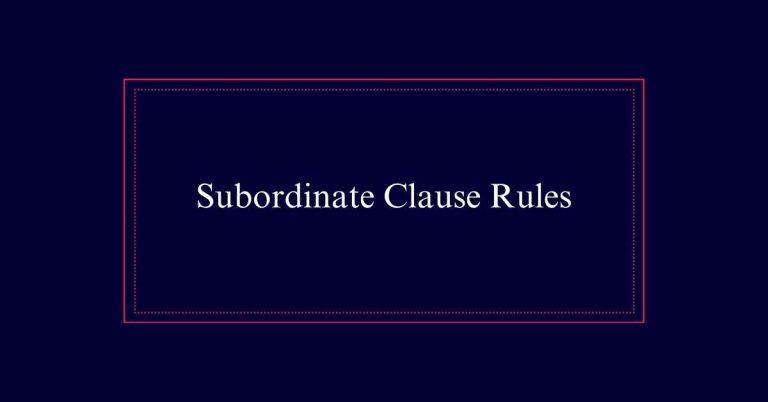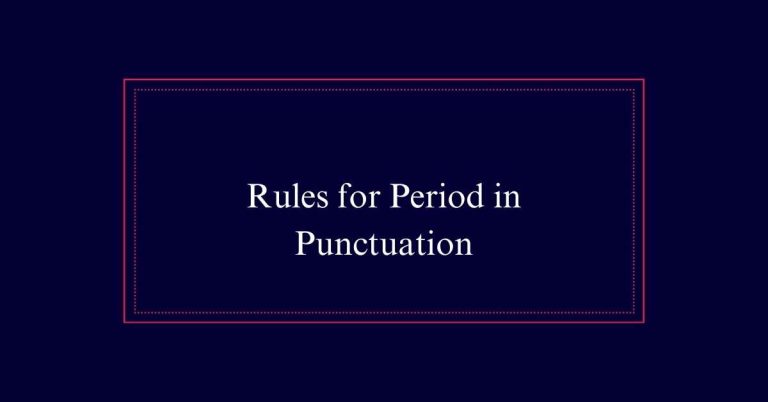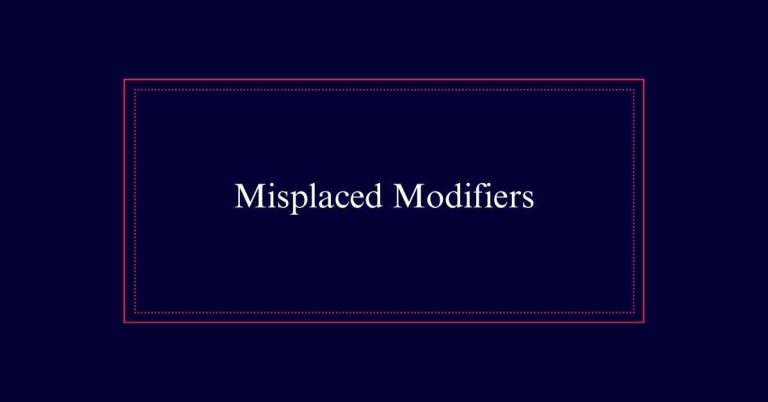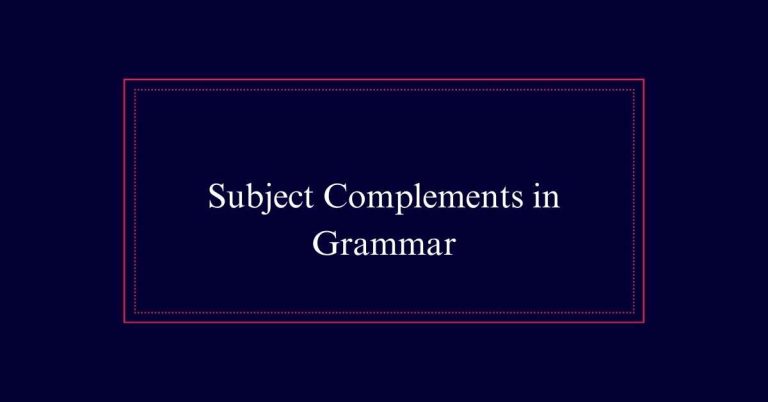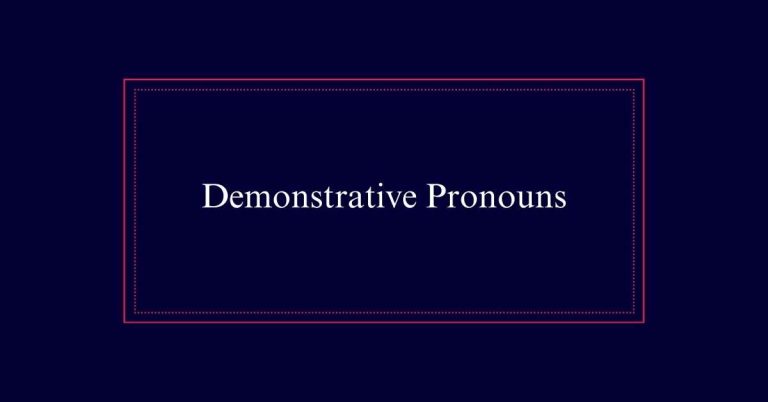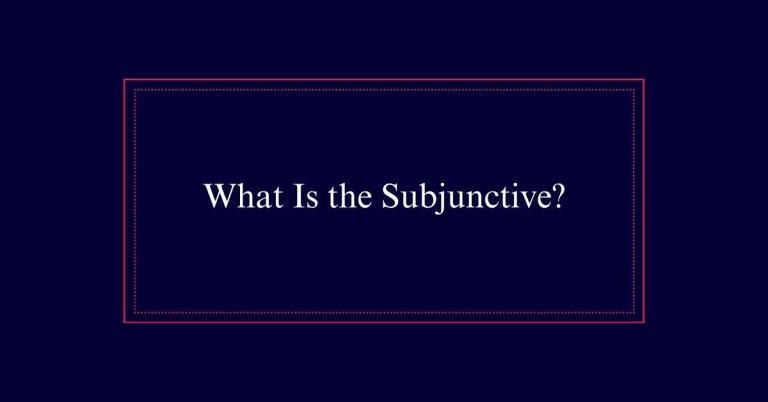What Is an Adverbial Clause?
An adverbial clause is a type of dependent clause that modifies verbs, adjectives, or other adverbs. It provides additional context such as time, place, manner, condition, or reason. Comprising a subject and a verb, it is distinct from an adverbial phrase. It often starts with subordinating conjunctions like ‘because,’ ‘if,’ or ‘when.’
Definition of Adverbial Clauses
An adverbial clause is a dependent clause that functions as an adverb, modifying verbs, adjectives, or other adverbs to provide additional context. It is composed of a subject and a verb, distinguishing it from an adverbial phrase.
This clause type enriches sentences by adding context, such as time, place, manner, condition, or reason. For example, in the sentence ‘She sings while she works,’ the phrase ‘while she works’ is an adverbial clause that provides context to the verb ‘sings.
Functions of Adverbial Clauses
Adverbial clauses serve to modify verbs, adjectives, or other adverbs by providing important information about time, place, manner, condition, or reason. These clauses add depth and context to sentences by specifying when, where, how, and why actions occur. They often begin with subordinating conjunctions like “because,” “if,” “when,” and “although.”
Here’s how adverbial clauses function in different contexts:
| Context | Example | Explanation |
|---|---|---|
| Time | “When she arrives, we’ll start the meeting.” | Specifies when the action will occur. |
| Place | “Wherever you go, I will follow.” | Indicates the location of the action. |
| Manner | “He speaks as if he knows everything.” | Describes the manner of the action. |
| Condition | “If it rains, we will cancel the picnic.” | Sets a condition for the action in the main clause. |
Structure and Composition
The structure of an adverbial clause consists of a subject and a verb, making it a complete dependent clause. This means it cannot stand alone as a sentence.
For example, in ‘When she arrived,’ ‘she’ is the subject, and ‘arrived’ is the verb.
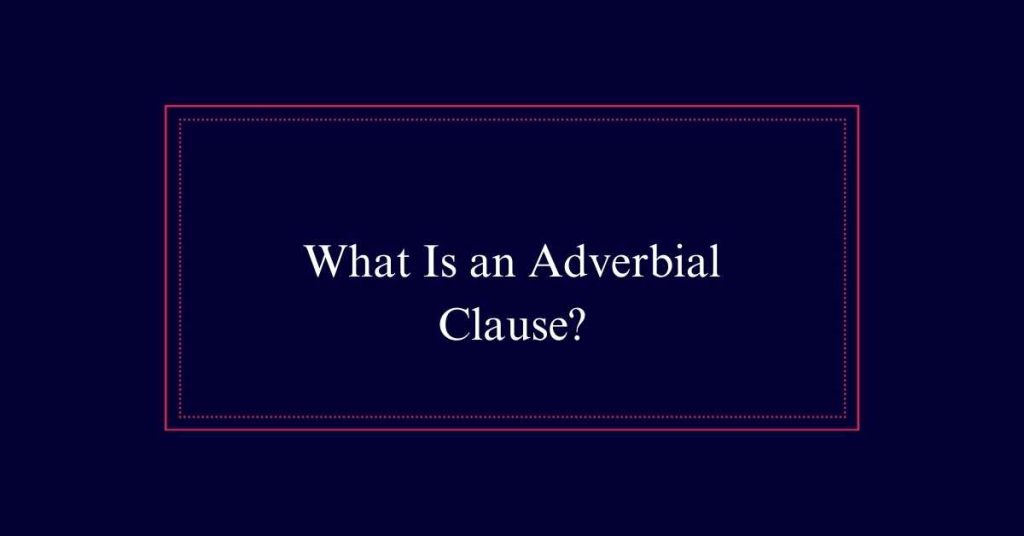
Adverbial clauses are introduced by subordinating conjunctions such as ‘because,’ ‘if,’ ‘when,’ ‘although,’ and ‘since.’ These conjunctions link the adverbial clause to the main clause, providing context.
The clause can describe various aspects like time, place, manner, condition, or reason. Despite being a complete clause, it depends on the main clause to form a coherent sentence, enriching the meaning by adding detailed information.
Placement in Sentences
In a sentence, an adverbial clause can be placed at the beginning, middle, or end to provide additional context and depth. When positioned at the beginning, it prepares for the main clause, often creating a smooth shift. For example, ‘Before the meeting started, the team reviewed their notes.’
In the middle, it interrupts the main clause to add relevant information, such as, ‘The team, although they were tired, continued working.’
At the end, it acts as a concluding thought, offering supplementary details, for instance, ‘The team continued working until they finished the project.’
Manner Adverbial Clauses
Manner adverbial clauses describe how an action is performed, providing details that enhance understanding of the main verb. These clauses give insight into the manner in which the action occurs.
For example, in the sentence ‘She sings as if she were a professional,’ the manner adverbial clause ‘as if she were a professional’ describes how she sings. Such clauses often begin with conjunctions like ‘as,’ ‘as if,’ or ‘like.’ They add depth to sentences by explaining the method or approach of the action.
Place Adverbial Clauses
Place adverbial clauses describe where the action of the main clause occurs, providing spatial context and clarity. They help to specify the location, making the narrative more vivid and detailed.
For example, in the sentence, ‘She found her keys where she left them,’ the clause ‘where she left them’ indicates the location of the action. These clauses often begin with conjunctions such as ‘where,’ ‘wherever,’ or ‘everywhere.’
Condition Adverbial Clauses
Condition adverbial clauses specify the circumstances under which the action in the main clause occurs. They often begin with conjunctions like ‘if,’ ‘unless,’ ‘provided that,’ or ‘as long as.’ These clauses set the conditions that must be met for the main action to happen.
For example, in the sentence ‘If it rains, we will cancel the picnic,’ the condition adverbial clause is ‘if it rains.’ This clause tells us that the picnic will be canceled only under the condition that it rains.
Condition adverbial clauses help to provide clarity and specify the exact circumstances that affect the main action, ensuring a more precise understanding of the sentence’s context.
Reason Adverbial Clauses
Just as condition adverbial clauses specify circumstances, reason adverbial clauses explain the cause or reason behind the action in the main clause. They typically begin with subordinating conjunctions such as ‘because,’ ‘since,’ or ‘as.’
For example, in the sentence ‘She stayed home because she was sick,’ the reason adverbial clause ‘because she was sick’ explains why she stayed home. These clauses provide necessary context and help the reader understand motivations and causality.
Time Adverbial Clauses
Time adverbial clauses specify when the action in the main clause occurs, adding essential temporal context to the sentence. These clauses often begin with subordinating conjunctions like ‘when,’ ‘while,’ ‘before,’ ‘after,’ and ‘since.’
By including a time adverbial clause, the writer provides a clear timeframe for the action, helping the reader understand the sequence of events.
These examples illustrate how time adverbial clauses enhance sentence clarity and coherence.
- When: ‘When the meeting ended, we went to lunch.’
- While: ‘While she was studying, her phone rang.’
- Before: ‘Before he left, he checked the weather.’
- After: ‘After the movie, they went for ice cream.’
- Since: ‘Since she moved, we haven’t spoken.’

